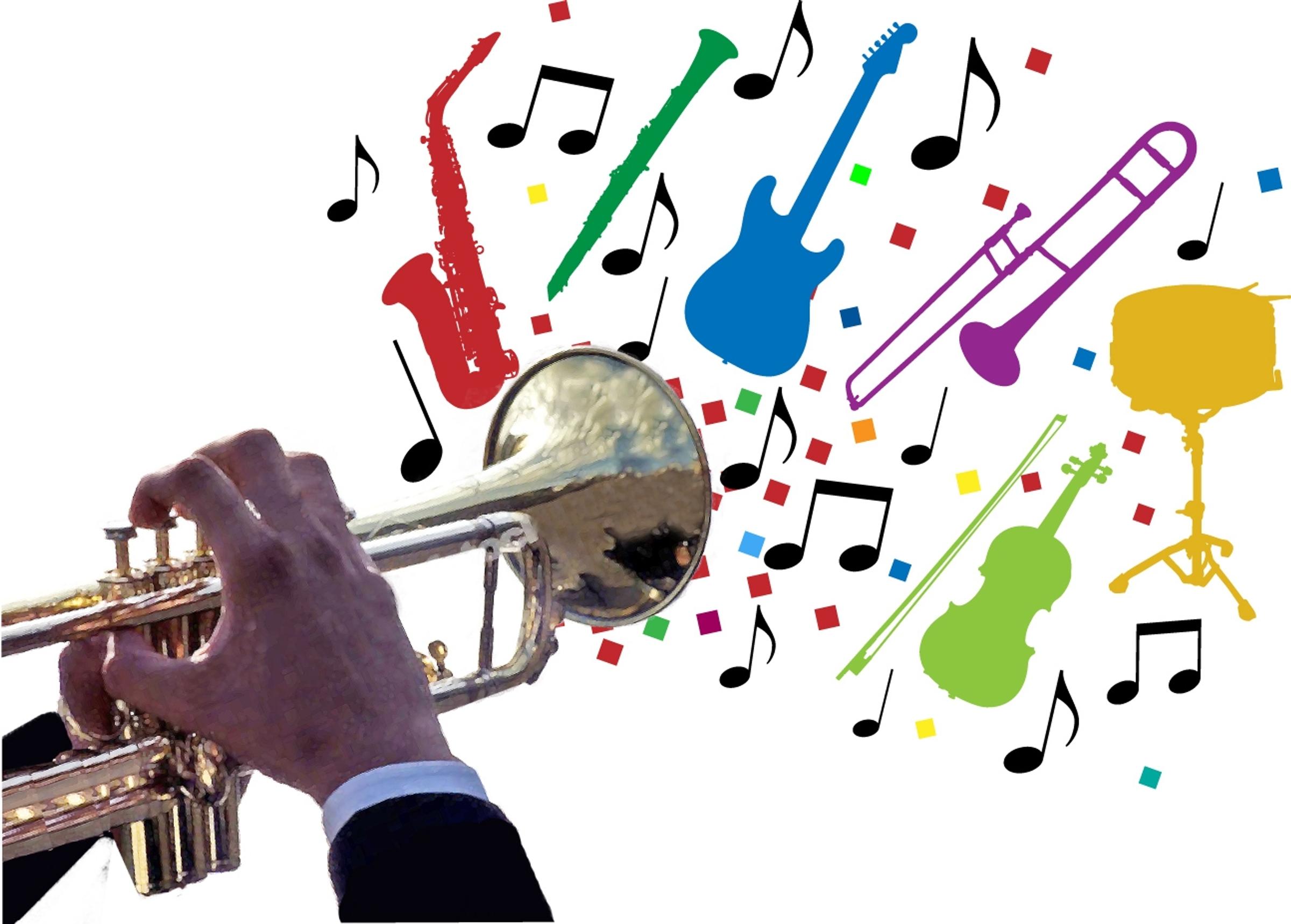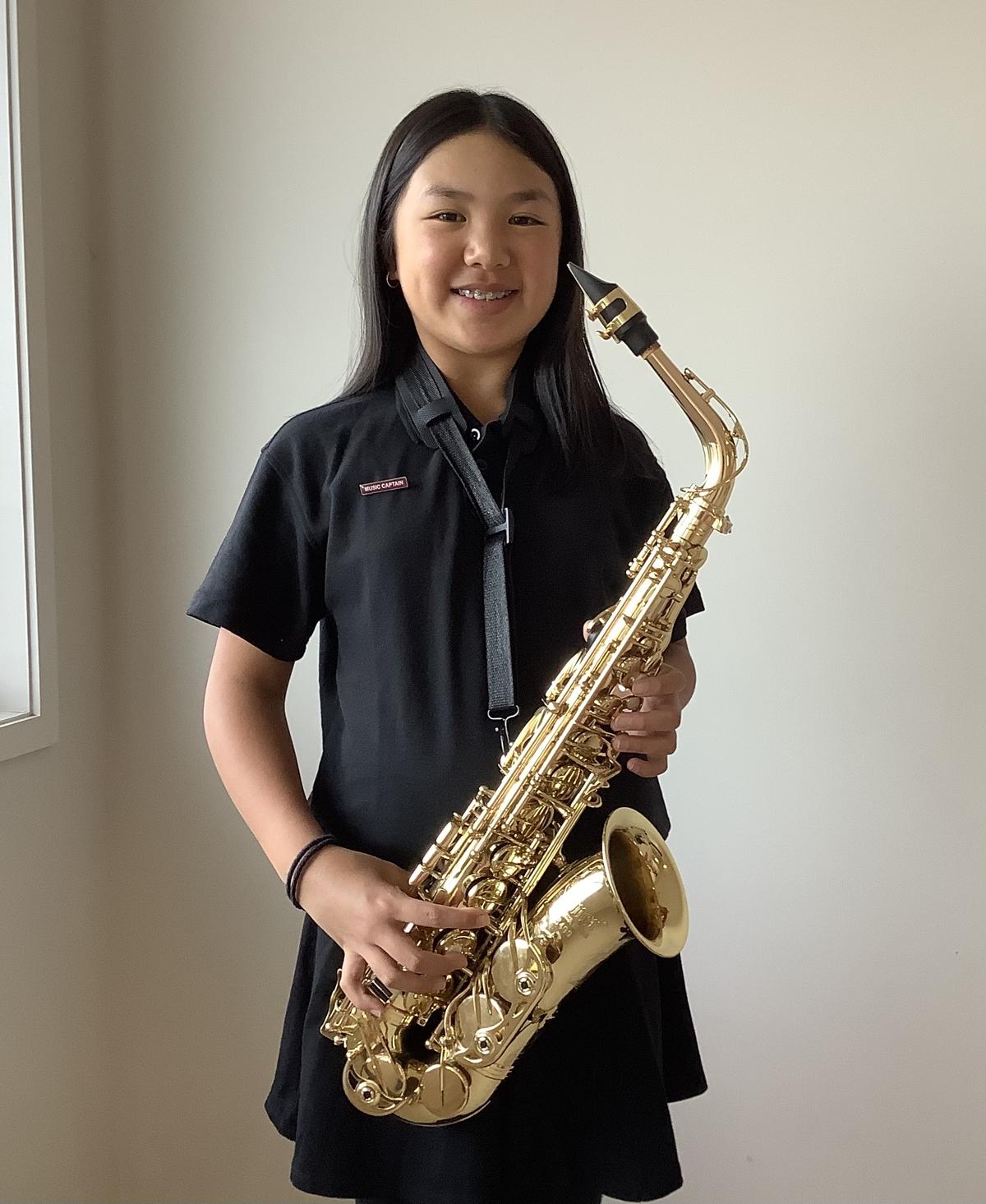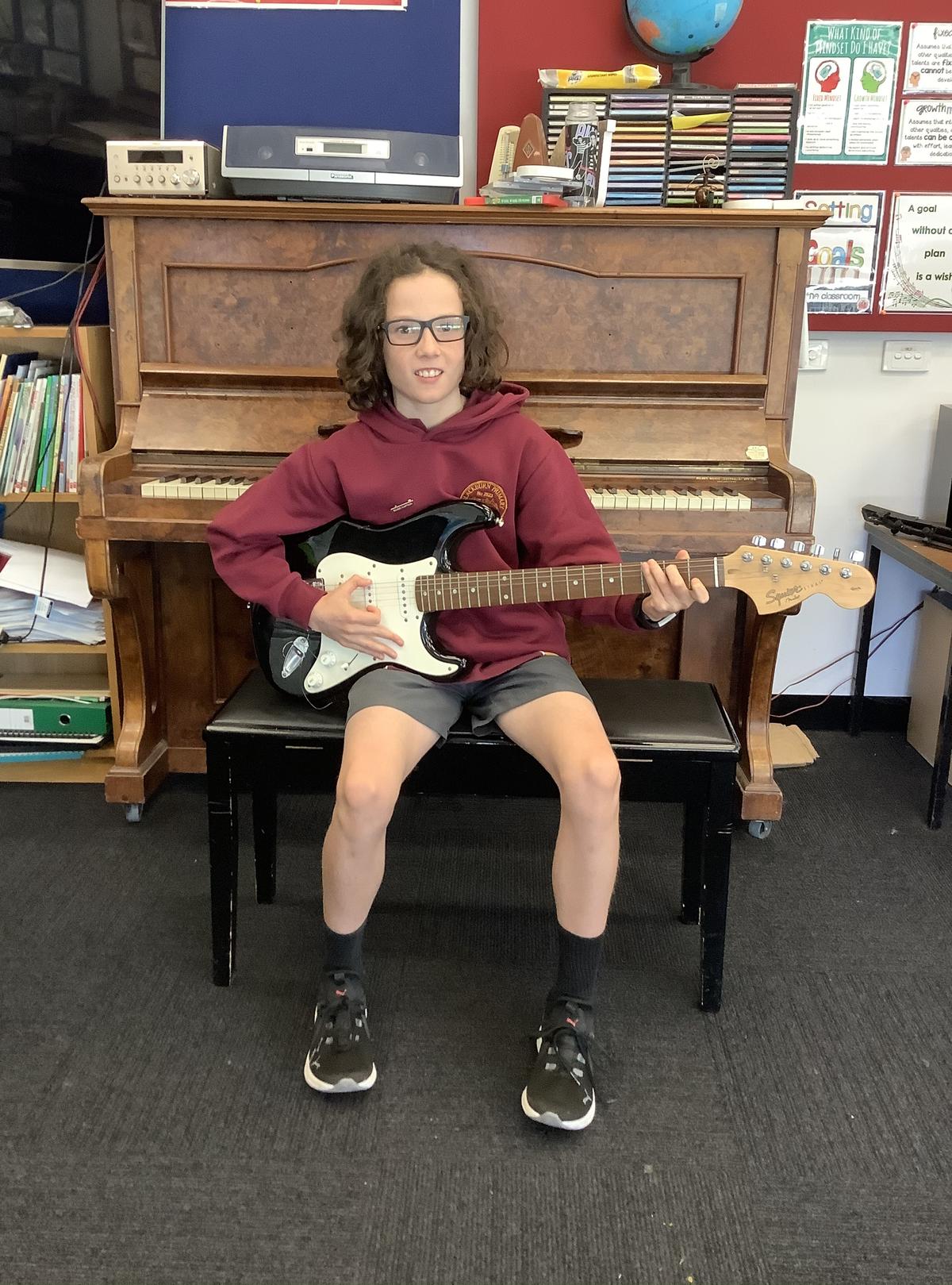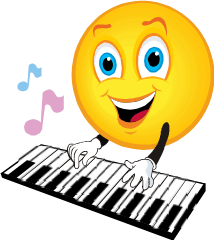BAND NEWS

INTRODUCING THE BAND CAPTAINS OF 2021
NAME: Danni Tai CLASS: 6B
INSTRUMENT: Saxophone
What is your favourite thing about your instrument?
My favourite thing about the saxophone is the sound it makes and all the different sounds it can make. It’s also a great solo instrument and you can play it in a band.
What is something interesting that you have learnt so far in your lessons or at band?
I had an interesting experience during remote learning when I had to learn by Zoom. The lessons were a bit more challenging, but I managed to learn many Disney songs such as “Can you feel the Love Tonight”.
What is the most exciting thing about being Band Captain at BPS?
The most exciting thing about being Band Captain is that I get to set up the sound system at assembly each week and control when the music plays. I also get to work closely with Mrs Shacklock and Mr Campbell.
NAME: Harry Maddocks CLASS: 6B
INSTRUMENT: Electric Guitar
What is your favourite thing about your instrument?
It’s an instrument with variety. You can play any genre and on your own or with an ensemble. You can also make different sounds by muting or playing the strings.
What is something interesting that you have learnt so far in your lessons or at band?
You can get people at all different levels and put it altogether to make a great sound.
What is the most exciting thing about being Band Captain at BPS?
Being involved with the band and encouraging people to learn an instrument at BPS.
Enjoy your break and don't forget to keep practising throughout the holidays!
Jordie Campbell
Practise Tips for Instrumentalists
by Lisa Shacklock
As a pianist who has experienced more than a few AMEB exams, I’ve learnt a thing or two about making my practise time really count (pardon the musical pun!) Below are some practise tips I have found to be very useful - for myself and my students (suitable for those preparing for instrumental exams AND for those who aren’t!)
| • Practise a little EVERY day; this is far more beneficial that one or two long practise sessions a week. |
| • Have a certain time each day that is set aside specifically for your practice. It will then become part of your daily routine. |
| • Split your daily practise into even smaller time chunks i.e. technical work in the morning and pieces in the afternoon/evening. |
| • Learn each piece a phrase at a time. Practise each phrase SLOWLY until you have it and then go to the next phrase. |
| • Starting at the beginning of the piece and playing through to the end each time you practise is not an effective use of your time - sometimes start in the middle of your piece and work to the end. |
| • Don’t practise mistakes or you will become very good at playing them! |
| • Practise the hard parts - not just the bits you like (hard to do - but necessary!) |
| • Regularly record yourself and listen carefully to it. |
| • Practise the hard parts - not just the bits you like (it's hard to do - but necessary!) |
| • Listen to your pieces being performed by a variety of instrumentalists (YouTube is great for this!) You will discover different nuances between each performer and develop an ear for important things such as dynamics, phrasing, touch and musical expression. |
I hope this list helps shed some light on effective practise. Maybe print it out to remind the budding instrumentalists in your household how to shake up their routine so that practising doesn't become a chore? (something every student - and parent - dreads!)
Harmonious holidays to you all!
Lisa Shacklock
Grades 2-6 Classroom Music & Choir Co-ordinator (M-W)




